Genken Meeting 2025 - Nairobi
A transformative step toward unity and Synodal Mission
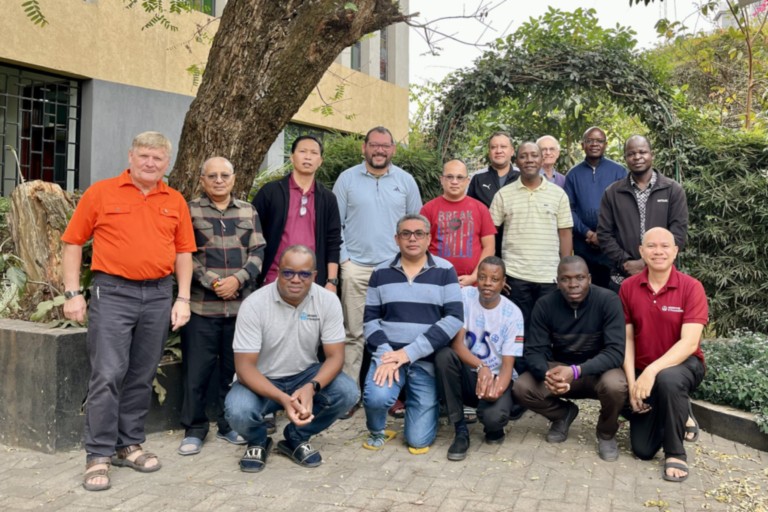
From September 16 to 30, 2025, the Quebec Foreign Mission Society (SME) gathered for a significant meeting at Nairobi, Kenya, — GENKEN 2025. Missionaries from across the world united under a shared purpose: to strengthen bonds, reflect on their mission, and deepen their collective commitment to a synodal Church.
For many, this gathering was more than a meeting; it represented a moment of renewed unity and purpose, marking a pivotal moment in the SME’s evolution as it prepares to embrace the challenges and opportunities of the future.
1. THE ORIGINS AND EVOLUTION OF GENKEN
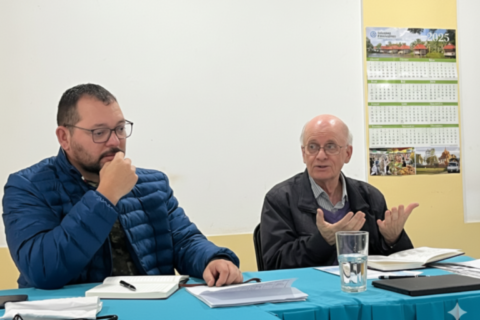
The GENKEN initiative began in 2012, when Bertrand Roy, pmé, envisioned creating a space to unite SME junior members, particularly those trained in Kenya, for strengthening solidarity and fostering deeper connections. The goal was to establish a platform where members could share their experiences, collaborate on projects, and deepen their commitment to the mission. Over time, GENKEN became an integral event for the SME, offering members the chance to renew their spiritual bonds and strengthen their missionary spirit.
In its early years, GENKEN was a face-to-face gathering, where members shared meals, exchanged ideas, and built lasting relationships. However, when the COVID-19 pandemic disrupted the world, in-person meetings were suspended. The SME adapted quickly, continuing to engage its members through Zoom meetings, ensuring that the sense of community and connection was maintained, even from a distance.
The GENKEN 2025 gathering marked the highly expected return to in-person meetings, providing the opportunity to reconnect, rebuild relationships, and redefine the future of the SME in a world that the pandemic had altered. The event was meticulously coordinated by the Central Council of the SME, with key facilitation from Mposo Hubert, Bertrand Roy, PMÉ, and Christian Busset, ensuring that the event was not only spiritually enriching but also forward-looking, addressing both practical concerns and long-term strategic goals for the SME’s future.
2. OBJECTIVES OF GENKEN 2025
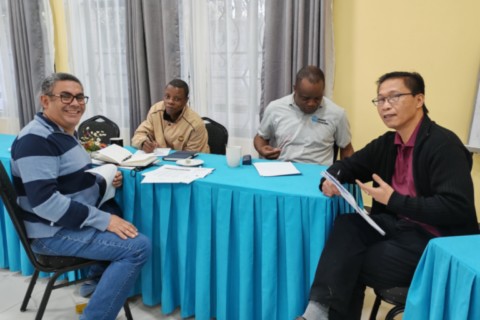
The primary aim of GENKEN 2025 was to restore and reinforce the bonds of fraternity and solidarity among Participants. Following years of enforced separation, this gathering provided a rare and vital opportunity to:
- Strengthen Fraternity – Rebuild the relationships among members and reinstate the deep bonds of trust that unite the community.
- Deepen the Sense of Belonging – Reaffirm the SME’s role as a global community of faith, reinforcing members’ connection to their shared mission and purpose.
- Share Personal Experiences and Visions – Provide a platform for members to share their personal experiences, aspirations, and visions for the future of the SME.
3. KEY THEMES AND WORKSHOPS
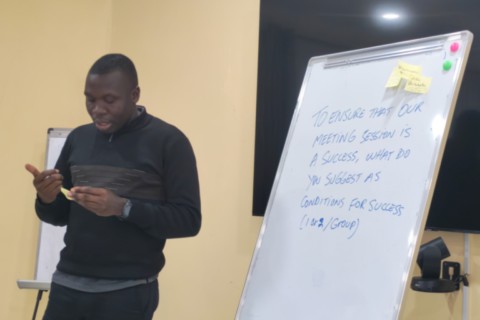
At the heart of GENKEN 2025 was a workshop on synodality, which focused on how Participants could more effectively live out collaboration, shared responsibility, and mutual respect within the community. The workshop emphasized adopting a synodal model of leadership where every member's voice is heard, and the community decides collectively. This approach ensures that leadership is distributed, creating an environment where all members contribute meaningfully to the mission.
The workshop’s goal was to foster an inclusive leadership model, where shared responsibility and active participation from all members strengthen the community, making it more unified and resilient. The discussions underscored that in a synodal Church, leadership is not concentrated in the hands of a few but is a collective endeavor.
4. LEADERSHIP AND COMMUNICATION

The discussions about leadership reinforced the importance of distributed leadership, which involves avoiding the concentration of power in a single individual.
Participants agreed that leadership should be collaborative, recognizing and using the unique strengths and talents of each member to benefit the collective mission.
Effective communication was also identified as a critical component of the SME’s success.
Transparent and open communication, both within the SME and with the communities it serves, ensures that everyone feels heard and understood, fostering a unified and cohesive environment.
5. TRANSFORMING DIFFERENCES INTO PATHS OF RECONCILIATION
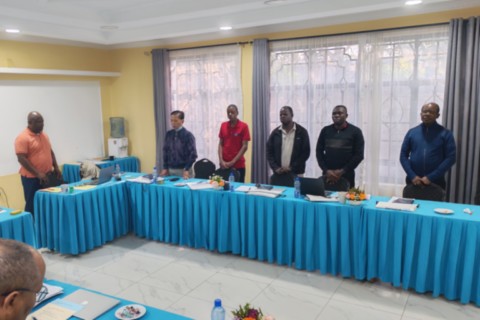
One of the central themes of GENKEN 2025 was how to transform differences — whether cultural, generational, or relational — into opportunities for reconciliation and fraternal growth. The community recognized that embracing these differences is essential for deepening its collective mission.
a. Embracing Vulnerabilities
The first step toward reconciliation was to embrace vulnerabilities. Participants were encouraged to speak openly about their weaknesses, recognize their limitations, and cultivate humility. By embracing vulnerability, members can create an environment where trust and authentic communication thrive, enabling each person to contribute genuinely to the community’s growth.
b. Open and Respectful Communication
Respectful communication was identified as essential for transforming tensions into growth. Members were encouraged to share their differences openly, always with empathy and respect. Discussions were centered on finding common ground in the Gospel, ensuring that conversations remained rooted in faith and mutual understanding. This approach fosters a culture where differences are not just tolerated but celebrated as part of the community’s richness.
c. Welcoming Differences as Gifts
The organizers encouraged participants to view differences as community-enhancing gifts, not obstacles. Intercultural learning became a key tool for fostering mutual respect, enabling members to appreciate and celebrate the diverse backgrounds and perspectives within the SME.
d. Forgiveness and Shared Responsibility
The SME also emphasized the importance of forgiveness and shared responsibility. Reconciliation requires members to take responsibility for their actions, adopt an attitude of forgiveness, and seek opportunities for mutual growth and development. This approach helps ensure tensions are not only resolved but that the community becomes stronger and more united as a result.
6. MANAGING TENSIONS
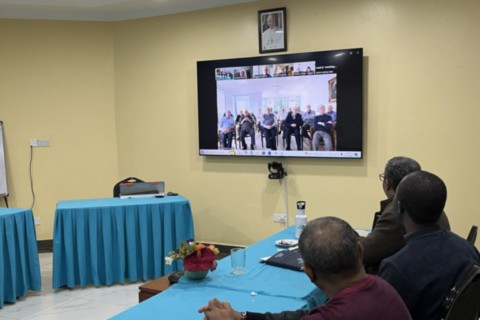
Throughout the gathering, participants discussed the tensions within the SME, particularly those related to cultural, generational, and clergy-laity divides. While these tensions can be challenging, they are viewed as opportunities for deeper understanding and reconciliation if managed thoughtfully.
a. Cultural Tensions
Participants acknowledged the risk of imposing one’s culture, especially in leadership roles, and emphasized the importance of embracing cultural diversity. The SME recognized that by promoting intercultural learning, it could ensure that diverse perspectives contribute to the community’s shared mission and strengthen its global impact.
b. Leadership and Responsibility Tensions
A significant point of reflection was the need for shared leadership and the fair distribution of responsibilities. The SME agreed that leadership should not be concentrated in a single individual, but should be distributed across the community. Recognizing each member’s gifts and contributions ensures everyone has a role in the mission, fostering a sense of co-responsibility and strengthening the community.
c. Clergy and Laity Tensions
The clergy-laity division was addressed by clarifying the roles and responsibilities of both groups. While each group has distinct roles in the mission, both are united in their missionary vocation. Ensuring proper formation for both clergy and laity is essential to fostering collaboration and shared responsibility.
d. Generational and Relational Tensions
The discussions also focused on generational tensions, with an emphasis on how maturity and respect for differences can foster a more harmonious community. The SME is committed to active listening, ensuring that all voices, regardless of age, are valued and heard in the shared mission.
7. CONCRETE MEANS OF DIALOGUE AND RECONCILIATION
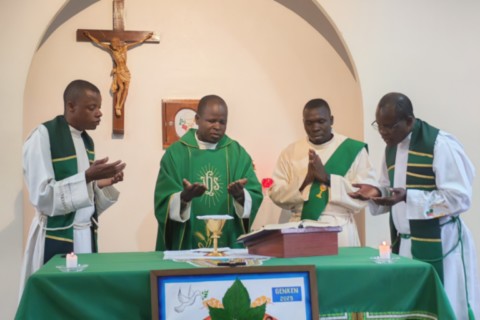
To facilitate dialogue and reconciliation, the SME identified several practical steps:
- Dedicated Spaces and Times: Establishing regular “sacred meetings” (such as Shalom gatherings) to allow for meaningful conversations and celebrating cultural differences through shared rituals and experiences.
- Reconciliation Practices: Using symbolic gestures like inviting a colleague for coffee or burning grievances in prayer to promote forgiveness.
- Inner Attitudes and Approaches: Practicing active listening, empathy, and respect to create a supportive environment for all members.
- Discernment and Fidelity: Regularly reviewing the community’s commitment to its charism and mission, ensuring alignment with Gospel values.
CONCLUSION: A TRANSFORMATIVE GATHERING
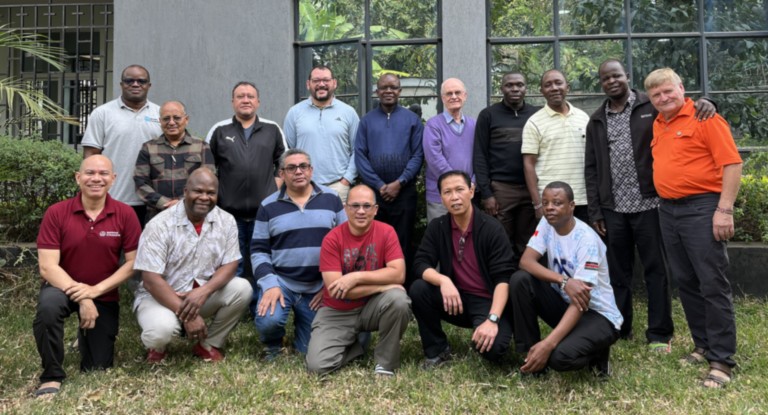
GENKEN 2025 was not just a meeting; it was a catalyst for change. It reignited the fraternity, solidarity, and missionary spirit that have always defined the SME, while charting a bold alternative course for its future. The gathering reaffirmed that the SME is not simply an organization but a living, dynamic community, deeply committed to justice, peace, and spiritual renewal.
